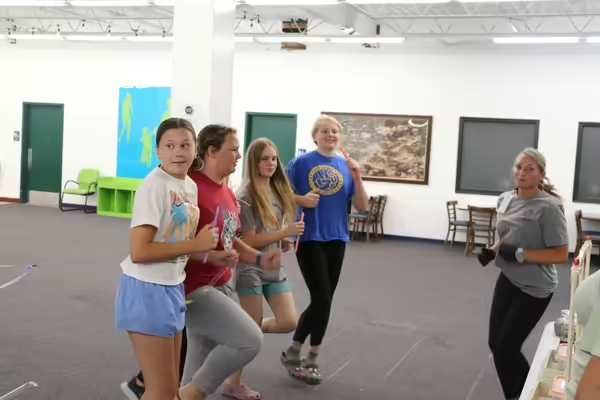
MURPHYSBORO, Ill. — On Wednesday, July 9, middle school students gathered at the Murphysboro Youth and Recreation Center for the Summer Health Rocks Bash, an interactive event focused on substance abuse prevention and mental wellness.
Participants rotated through three hands-on stations created to interest a younger age to want to learn about healthy habits:
Students explored the dangerous effects of alcohol by learning the legal limits for operating machinery and discover how alcohol impairs coordination and choices. They then attempted to ride tricycles along a marked course—first normally, then while wearing drunk driving goggles for a realistic simulation.
The next station focused on the impact of tobacco use, not just on the lungs but the entire body. Students tried breathing through straws to simulate emphysema, examined “tar jars” showing the yearly buildup in smokers' lungs, and even compared real healthy lungs to those damaged by long-term tobacco use.
Students were introduced to creative techniques for managing anxious feelings, including writing, stretching, and yoga. One surprising method? Eating sour candy to stimulate nerves and help calm the brain.
To wrap up the event, students received coping kits and enjoyed free pizza, reinforcing healthy habits with a fun reward. The Summer Health Rocks Bash was an afternoon of fun and safety.
University of Illinois Extension develops educational programs, extends knowledge, and builds partnerships to support people, communities, and their environments as part of the state's land-grant institution. Extension serves as the leading public outreach effort for University of Illinois Urbana-Champaign and the College of Agricultural, Consumer and Environmental Sciences in all 102 Illinois counties through a network of 27 multi-county units and over 700 staff statewide. Extension’s mission is responsive to eight strategic priorities — community, economy, environment, food and agriculture, health, partnerships, technology and discovery, and workforce excellence — that are served through six program areas — 4-H youth development, agriculture and agribusiness, community and economic development, family and consumer science, integrated health disparities, and natural resources, environment, and energy.